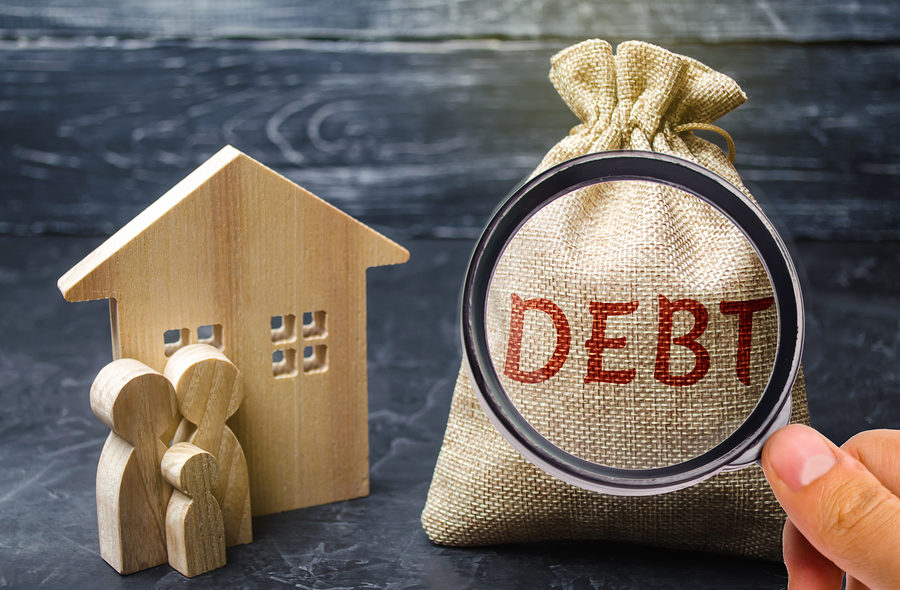Many people view bankruptcy as this great unknown and truly do not understand the process before filing. However, it helps to understand what is involved when filing for bankruptcy and what to expect during the process.
What Is Bankruptcy?
Bankruptcy is a legal proceeding that basically provides the filer a fresh financial start. While it does involve putting the filer’s financial situation in the hands of the bankruptcy court and bankruptcy trustee, it can give the person a chance to breathe and get back on his or her feet. Bankruptcy will put all collection proceedings and foreclosure cases at a stop through the automatic stay and will also stop creditors from continuing to contact the consumer.
Choosing the Right Bankruptcy Route.
Keep in mind that the bankruptcy process is not a “one size fits all.” A Chapter 7 bankruptcy is a proceeding often referred to as a liquidation bankruptcy. To qualify, the consumer needs to be below a threshold income when compared to the amount of debt he or she has. Under a Chapter 7 bankruptcy, the bankruptcy trustee will sell the filer’s assets that are not protected under Florida’s bankruptcy exemptions and will use them to pay back some of the filer’s debts. Often, most of the filer’s unsecured debts, including credit cards and medical debt, will be discharged at the end of the case. A Chapter 7 bankruptcy normally takes a few months to complete.
If the filer has enough income to pay their debts through a repayment plan and does not pass the income means test to qualify for Chapter 7 bankruptcy, he or she will proceed with a Chapter 13 bankruptcy otherwise known as a reorganization bankruptcy. Under this type, the filer will work closely with the bankruptcy trustee to create a repayment plan over the course of three to five years. At the end of that time, the remaining debts will then be discharged. Many filers prefer this method of bankruptcy because they get to keep their property during the case. This fact is especially important if it is a goal of the filer to keep his or her home or car during the case.
Hire an Experienced Bankruptcy Attorney.
Bankruptcy can be done without legal counsel by filing Pro Se, but keep in mind that the process involves a great deal of paperwork and can be complicated. Unless the filer has a firm grasp on what is needed, small mistakes can result in the case being dismissed. It can also result in the filer losing valuable property. While many filers want to avoid the legal fees that go along with paying an attorney, it is often best to hire a professional help you through the process. An attorney can ensure that the process goes smoothly and correctly, which makes it much less stressful in the end for the consumer.
Understand Florida’s Bankruptcy Exemptions.
Many consumers hold off on filing for bankruptcy for fear of losing valuable assets. However, this one of the biggest misconceptions surrounding bankruptcy. In fact, Florida offers some of the more generous bankruptcy exemptions, including those for the filer’s home, car, retirement accounts and other items of property. Many times, it depends on the type of bankruptcy being filed, as well as how much the person owes on the property or how behind he or she has gotten on payments on the property. The filer’s bankruptcy attorney will be able to fully explain these exemptions to the filer.
Be Honest.
One of the worst mistakes a filer can make is not being honest about his or her assets, debts, and income when completing the initial bankruptcy paperwork. Since this paperwork is legal in nature, the filer must certify that he or she is being truthful on all forms and schedules filed with the court. Transferring property to family members, charging large amounts of debt on credit cards can result in your case being dismissed.
Know Which Debts Will Be Discharged.
One matter to keep in mind is that not all debts of the filer will be discharged in a bankruptcy case. Usually, the debts that are discharged include unsecured debts, mainly credit cards, medical debt, personal loans, etc. Mortgages and car loans will normally stick with the asset if the filer wishes to keep it. Student loans are rarely discharged unless the filer can meet the undue hardship test.
You Can Immediately Begin Rebuilding Your Credit After Bankruptcy.
On average, a bankruptcy case will stay on the filer’s credit report for either seven years or ten years depending on the chapter filed. It is important consumers know that immediately after filing for bankruptcy they can begin rebuilding their credit score. As more time goes by with no other issues, such as collections or foreclosure, the filer’s credit score will improve. Good financial habits consistently exercised over time will also lead to the credit score improving.
If you have questions on this topic or are in financial crisis and considering filing for bankruptcy, contact an experienced Miami bankruptcy attorney who can advise you of all of your options. As an experienced CPA as well as a proven bankruptcy lawyer, Timothy Kingcade knows how to help clients take full advantage of the bankruptcy laws to protect their assets and get successful results. Since 1996 Kingcade Garcia McMaken has been helping people from all walks of life build a better tomorrow. Our attorneys’ help thousands of people every year take advantage of their rights under bankruptcy protection to restart, rebuild and recover. The day you hire our firm, we will contact your creditors to stop the harassment. You can also find useful consumer information on the Kingcade Garcia McMaken website at www.miamibankruptcy.com.

